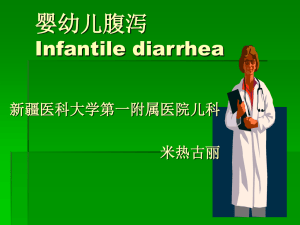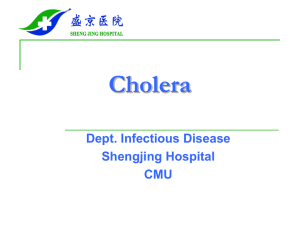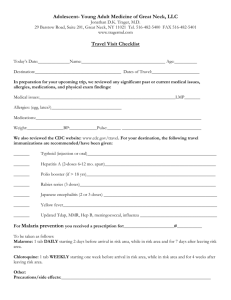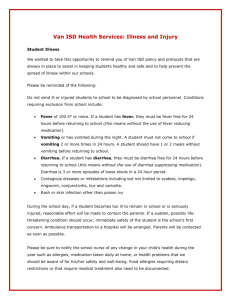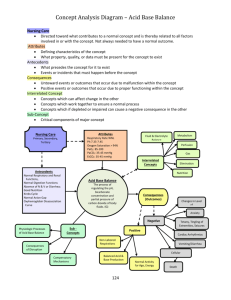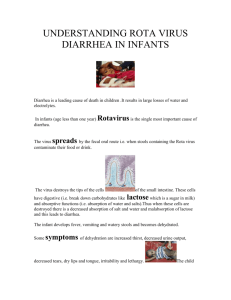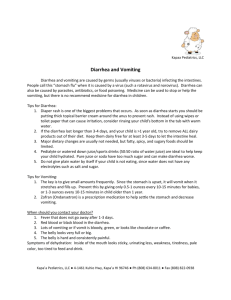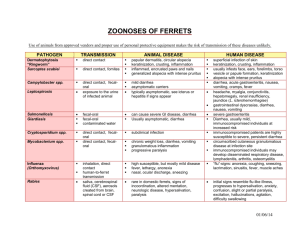Travellers Diarrhea Fact Sheet - The Centre for Family Medicine
advertisement
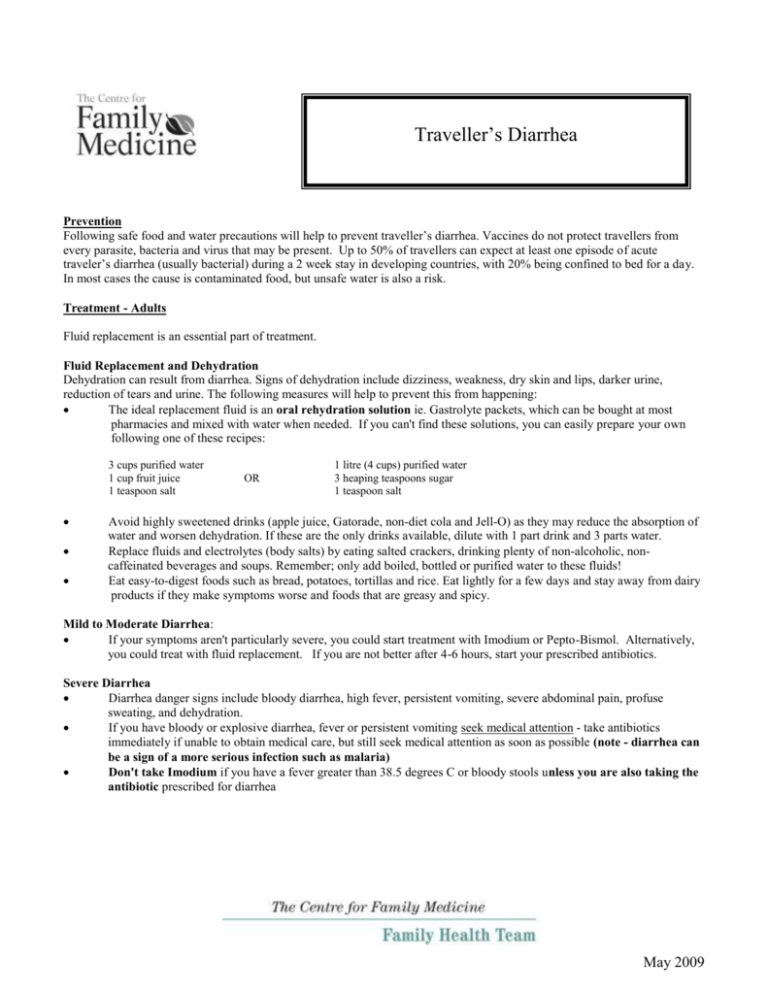
Traveller’s Diarrhea Prevention Following safe food and water precautions will help to prevent traveller’s diarrhea. Vaccines do not protect travellers from every parasite, bacteria and virus that may be present. Up to 50% of travellers can expect at least one episode of acute traveler’s diarrhea (usually bacterial) during a 2 week stay in developing countries, with 20% being confined to bed for a day. In most cases the cause is contaminated food, but unsafe water is also a risk. Treatment - Adults Fluid replacement is an essential part of treatment. Fluid Replacement and Dehydration Dehydration can result from diarrhea. Signs of dehydration include dizziness, weakness, dry skin and lips, darker urine, reduction of tears and urine. The following measures will help to prevent this from happening: The ideal replacement fluid is an oral rehydration solution ie. Gastrolyte packets, which can be bought at most pharmacies and mixed with water when needed. If you can't find these solutions, you can easily prepare your own following one of these recipes: 3 cups purified water 1 cup fruit juice 1 teaspoon salt OR 1 litre (4 cups) purified water 3 heaping teaspoons sugar 1 teaspoon salt Avoid highly sweetened drinks (apple juice, Gatorade, non-diet cola and Jell-O) as they may reduce the absorption of water and worsen dehydration. If these are the only drinks available, dilute with 1 part drink and 3 parts water. Replace fluids and electrolytes (body salts) by eating salted crackers, drinking plenty of non-alcoholic, noncaffeinated beverages and soups. Remember; only add boiled, bottled or purified water to these fluids! Eat easy-to-digest foods such as bread, potatoes, tortillas and rice. Eat lightly for a few days and stay away from dairy products if they make symptoms worse and foods that are greasy and spicy. Mild to Moderate Diarrhea: If your symptoms aren't particularly severe, you could start treatment with Imodium or Pepto-Bismol. Alternatively, you could treat with fluid replacement. If you are not better after 4-6 hours, start your prescribed antibiotics. Severe Diarrhea Diarrhea danger signs include bloody diarrhea, high fever, persistent vomiting, severe abdominal pain, profuse sweating, and dehydration. If you have bloody or explosive diarrhea, fever or persistent vomiting seek medical attention - take antibiotics immediately if unable to obtain medical care, but still seek medical attention as soon as possible (note - diarrhea can be a sign of a more serious infection such as malaria) Don't take Imodium if you have a fever greater than 38.5 degrees C or bloody stools unless you are also taking the antibiotic prescribed for diarrhea May 2009 Traveller’s Diarrhea and Children Treatment Issues and Recommendations: Dehydration: The main risk from diarrhea for infants and children is dehydration, which can become life threatening if severe. Signs of dehydration include dizziness, weakness, dry skin and lips, darker urine, reduction of tears and urine and weight loss. Fluid Replacement - essential to vigorously replace fluids: The ideal replacement fluid is an oral rehydration solution (ORS) ie. Gastrolyte packets, which can be bought at most pharmacies and mixed with water when needed. World Health Organization (WHO) oral rehydration salts are widely available in developing countries. The infant or child who vomits will usually keep it down if it is offered by spoon in frequent small sips. If you can't find these solutions, you can easily prepare your own following one of these recipes: 3 cups purified water 1 cup fruit juice 1 teaspoon salt 1 litre (4 cups) purified water 3 heaping teaspoons sugar 1 teaspoon salt Amount of ORS solution to drink: Children under 2 years Children 2 - 10 years OR ¼ - ½ cup (50 - 100 ml) after each loose stool ½ - 1 cup (100 - 200 ml) after each loose stool Avoid highly sweetened drinks (apple juice, Gatorade, non-diet cola and Jell-O) as they may reduce the absorption of water. If these are the only drinks available, mix 1 part drink with 3 parts water. Breastfeeding should be continued as long as possible. If formulas are used, they must be made with boiled unless it is a ready-to-feed preparation. Full strength lactose reduced formulas could be considered. water Food Recommendations: In general, children with diarrhea should continue to be fed their usual diet during the illness. Recommended foods include starches, cereals, yogurt, fruits and vegetables. Severe Diarrhea: Immediate medical attention is required for the infant or young child with diarrhea who develops signs of dehydration, bloody diarrhea, fever greater than 38.5 degrees C or persistent vomiting Remember diarrhea can be a sign of other more serious infections such as malaria, and may require different treatment Oral rehydration solution and your prescribed antibiotics should be given while medical attention is being obtained Imodium should only be given to children 2 -12 years on the advice of a physician (not recommended under the age of 2 years) May 2009
